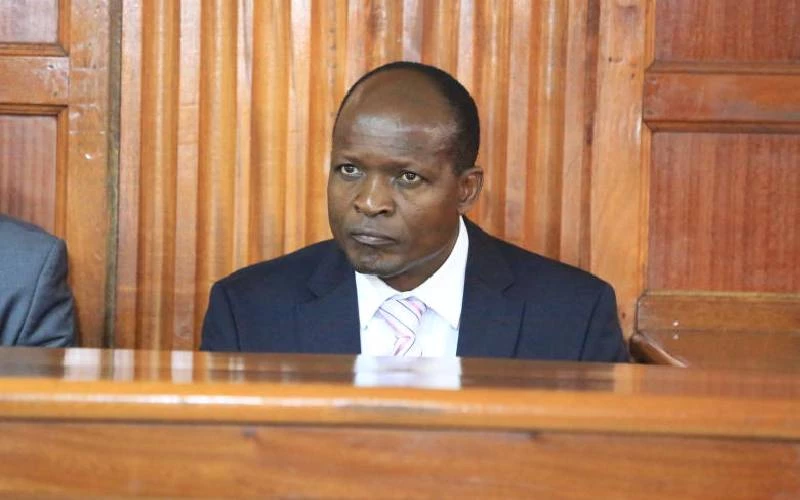Former Migori Governor Zachary Okoth Obado, along with his four children Dan Achola Okoth, Scarlet Susan Okoth, Everlyn Zachary Okoth, and Jerry Zachary Okoth, alongside 11 other co-accused, are set to face trial beginning Tuesday.
The trial will take place at the Milimani Anti-Corruption Court in Nairobi.
The case adjourned Monday due to a mix-up in file annexure markings shortly after the first prosecution witness took the stand.
Chief Magistrate Victor Wakumile adjourned proceedings to allow the parties to convene and properly plan for Tuesday’s commencement of the trial.
The Ethics and Anti-Corruption Commission’s (EACC) first prosecution witness (PW1) will testify about the alleged theft of public funds and conflict of interest involving Obado, his children, and county officials.
59 witnesses have been lined up to testify before the court in a bid to prove the case against the Governor and co-accused persons.
EACC undertook investigations in this case after receiving allegations that Migori County Government had made suspicious payments to multiple companies, totalling Ksh 1.98 billion.
However, after investigations, most payments were found to have been lawfully made with respect to executed contracts whose works were confirmed in a verification exercise while payments amounting to Ksh 235 million remained unexplained and thus deemed to have been fraudulently acquired from the County Government.
The unexplained amount, which the Commission found to be proceeds of corruption, including kickbacks directly sent by some companies to foreign universities as school fees for Obado’s children as well as high-end properties purchased for the family by the said contractors, have since been recovered through Alternative Dispute Resolution (ADR), following a civil recovery suit filed at the High Court.
The Commission will dispose of the seized properties by public auction in accordance with the court orders issued by Justice Esther Maina.
If the Trial Court finds the accused persons guilty in the ongoing criminal case, they will be convicted and sentenced in accordance with section 48 of the Anti-Corruption and Economic Crimes Act, 2003, which provides for a maximum jail term of 10 years for each offence and a mandatory fine equal to two times the amount of any public funds lost or benefit acquired by the accused person.
Additionally, Section 64 of the Act bans convicted persons from appointment or election to any public office for a period of 10 years.





